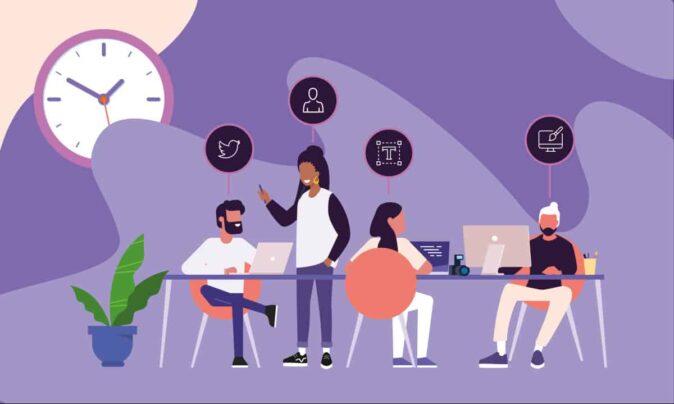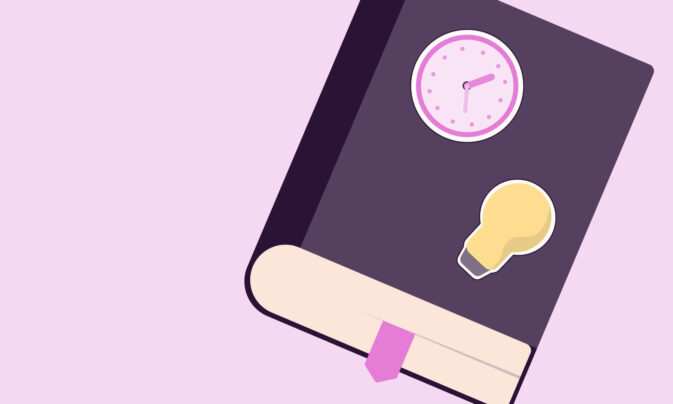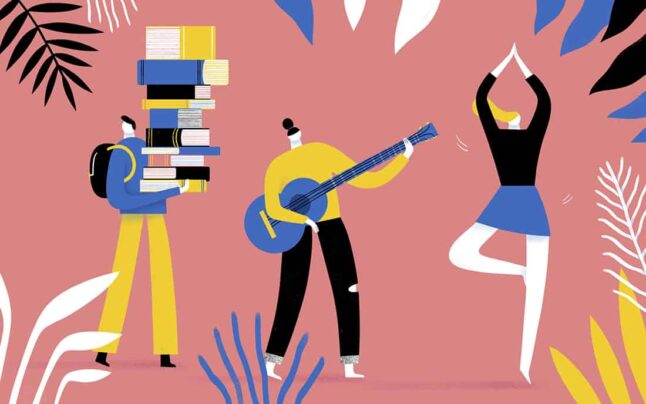I’ll never forget my first office job. I worked for an online bed and breakfast directory that thousands of people used to book B&B stays in Canada. I invoiced customers, created and updated their listings, and answered the occasional phone call. Although the computers were all internet-enabled, there was no Facebook, YouTube, or Instagram yet, and the texting feature on our phones was, strange as it sounds, text-only.
It was the most productive four years I ever spent. Why? Because there were no distractions. No Facebook alerts to throw your concentration off-course and if you wanted to share images, you built a website. I’m going to stop before I date myself further, but the point is that the distraction potential back then was a fraction of what it is today.
Nowadays, our phones make so much noise that they sound possessed: breezy text alerts, chipper Slack notifications, beeps from Facebook Messenger, you name it. There is also a trend towards open-concept offices. They are supposed to encourage communication which, by the way, is also distracting.
Make no mistake about it: distractions can kill productivity. You may think that you’re only taking a few seconds out of your workday to read the text that just came in, but it takes a lot longer than that to get back on track.
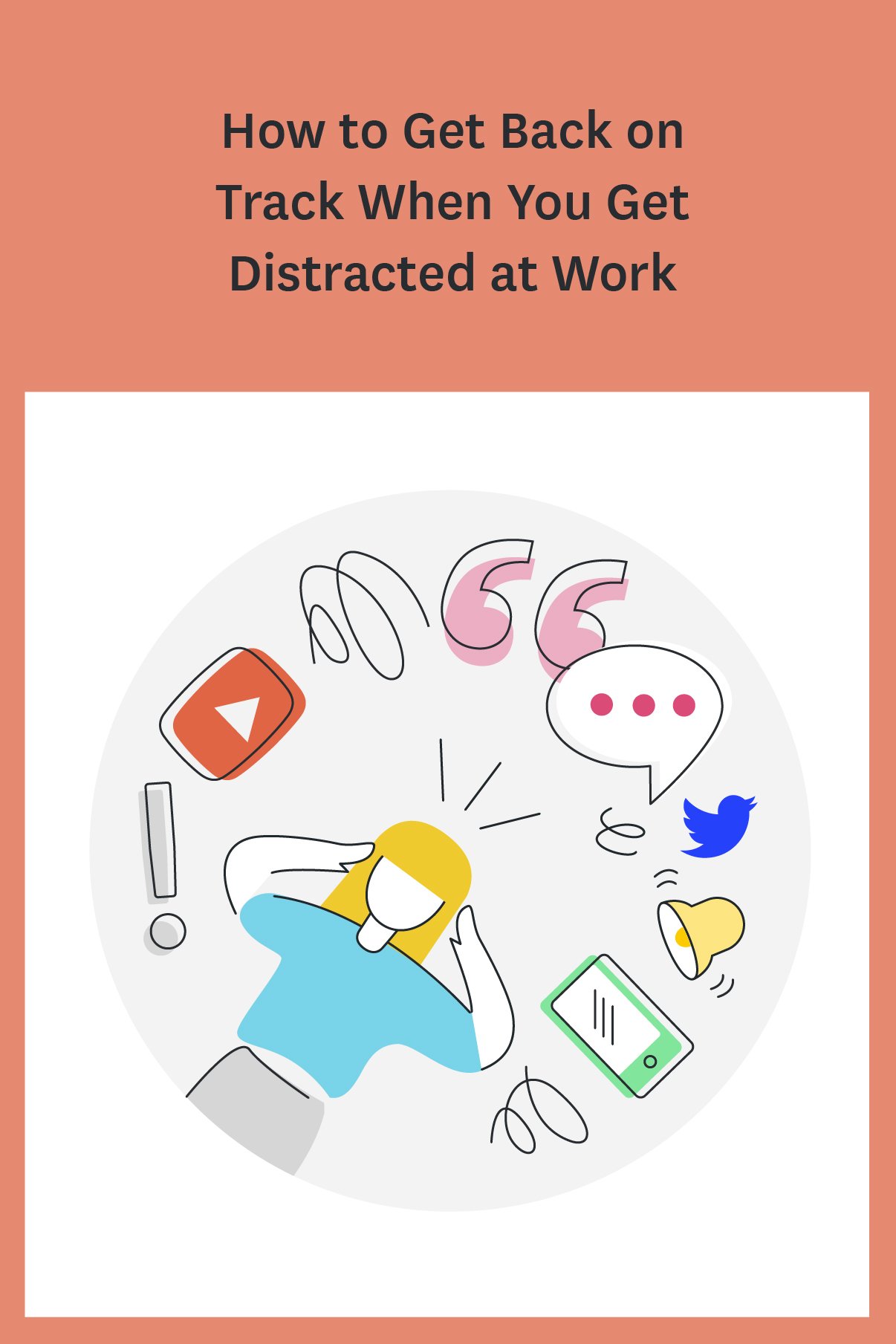
Brain, Interrupted
A study by the University of California, Irvine found that it takes an average of 23 minutes and 15 seconds to get yourself back on track after being interrupted. This means that even if you’re lucky enough to get distracted only a few times a day, you lose an hour of work!
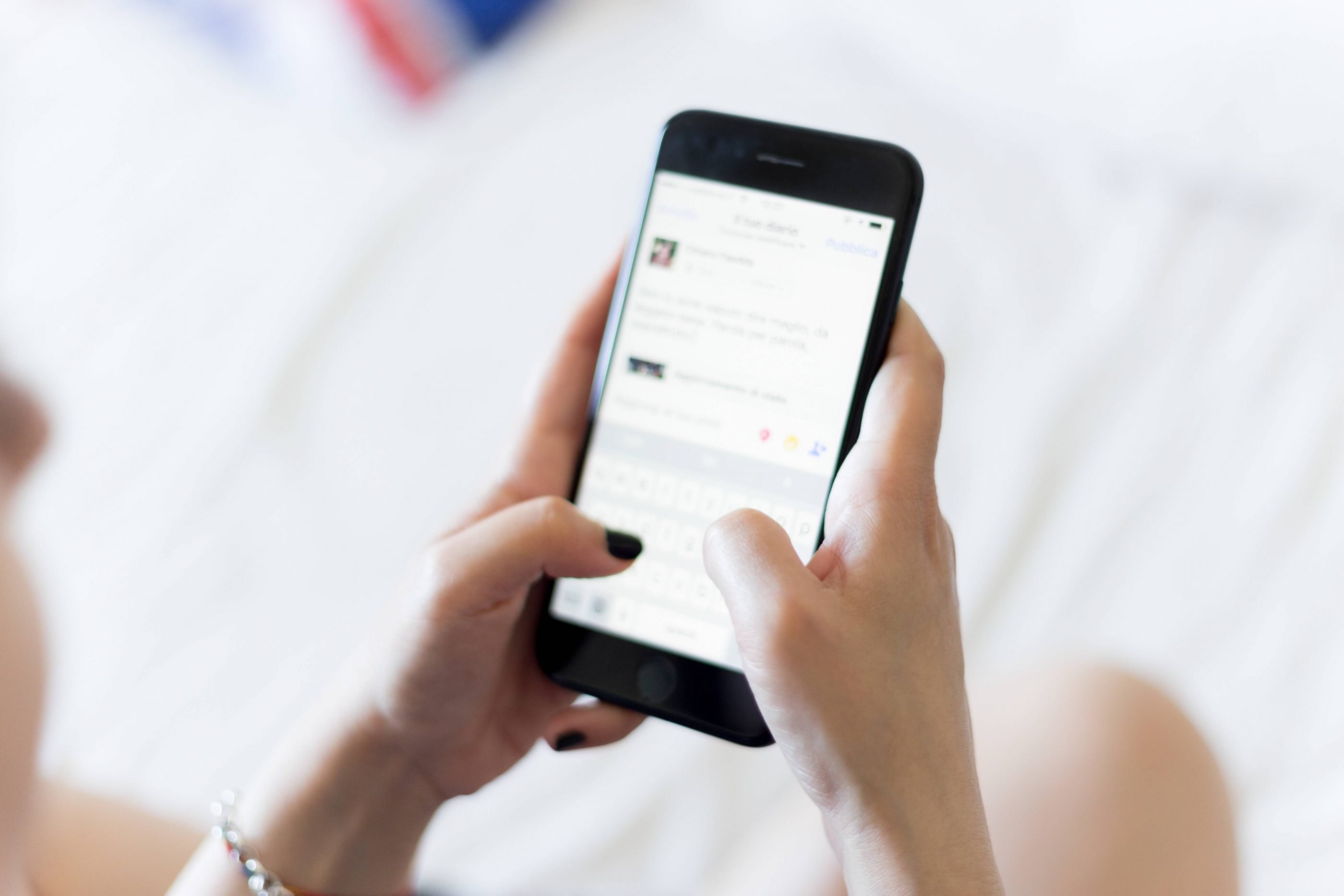
Even the possibility of interruption can have a deleterious effect on your ability to focus. An article in the Journal of the Association for Consumer Research found that if your smartphone is close at hand while you’re working, your performance can be affected even if you don’t receive any messages or notifications.
So what can you do? From Instagram and Snapchat to YouTube and Facebook, distractions appear to be a part of life today, and if someone or something shakes you out of the zone, it’s going to be an uphill battle to get back into it.
That’s the bad news. The good news is that there are steps you can take to limit the opportunities for distraction so that you can remain as focused and productive as possible.
Notifications? Just Say No!
You have probably heard the saying “Fool me once, shame on you. Fool me twice, shame on me.” Apply it to distractions. If you forgot to turn off Facebook notifications or Snapchat alerts before starting work for the day and a familiar ‘beep’ interrupts your concentration, don’t let there be a second time: turn off all non-necessary notifications.
If you don’t use your phone for work purposes, I recommend putting it on the ‘Do Not Disturb’ setting and putting it somewhere that requires you to make an extra effort to get it, such as in your coat pocket.
If you’re working on a task that doesn’t need Internet access, such as running numbers on a spreadsheet or writing a report, unhook the Ethernet cable from your computer or turn off its Wi-Fi. You can plug back in when you’re done. If you need the Internet to do your work, there are browser extensions and apps available that block certain websites, such as Facebook or YouTube, so that they can’t distract you further.
Keep It Classical
Horror novelist Stephen King once said that he wrote many of his books while listening to Metallica and other heavy metal bands. Unless your job is writing about rabid St. Bernards and prom queens with telekinetic powers, try classical music instead.
According to this article, a study at a university in France found that when students attended a lecture with classical music playing softly in the background, they absorbed and recalled more information that students who listened in silence.
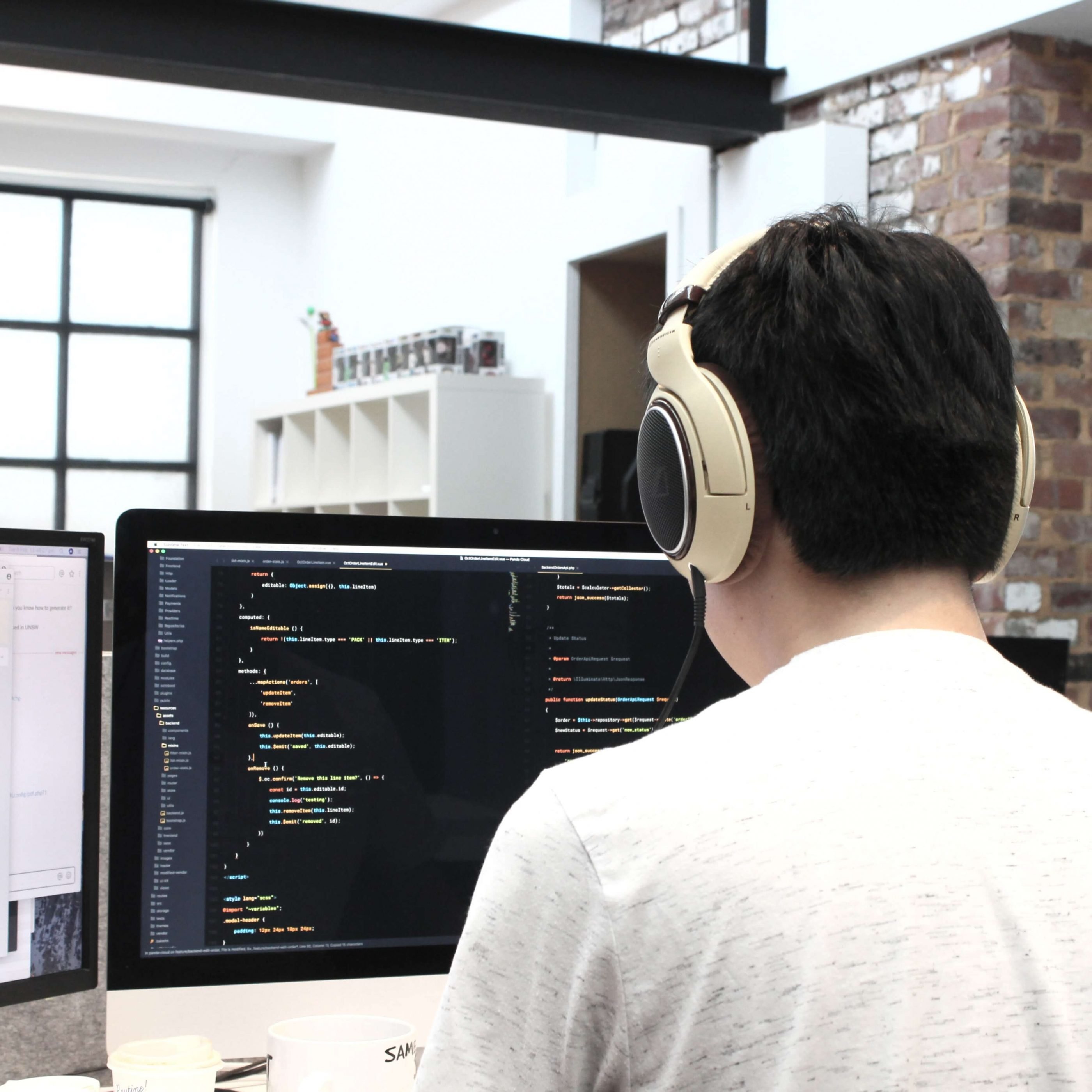
I’ve tried this at work using headphones, and it does make a difference. Not only are you listening to soothing classical music, but you’re less likely to be interrupted because people normally hesitate before bothering someone wearing headphones. When interruptions do occur, I find that I’m able to get back on track pretty quickly.
Try White Noise
White noise has been used to improve learning in children with attention-deficit hyperactivity disorder (ADHD). A new piece of research published in the Journal of Cognitive Neuroscience suggests that white noise has a positive effect on the brain when it is doing memory tasks.
Researchers asked participants to remember photos of different scenes while listening to white noise, one of three other sounds, or no noise at all. They found that listening to the white noise (in this case a ‘sh’ sound) improved their memory of the images compared to the control sounds or silence.
There are some great apps that you can install on your phone or tablet to keep your mind focused and minimize the effects of distraction. They include:
- White Noise: Over 40 sounds to choose from, including fans whirring and brown noise, which is low-frequency sound masking.
- Coffitivity: Uses cafe sounds to heighten your creativity and keep you focused.
- myNoise: Includes sounds designed specifically for noise blocking,
Make a Note to Self
I’ve been using this strategy since my homework days. If I’m working on something and an interruption or new priority like a meeting takes me off track, I grab a pen and make a few quick notes about the direction I was going in. When I’m ready to resume, it’s easier to recall where I was headed before the interruption and get back to work.
Researchers at the University of Minnesota Carlson School of Management ran some tests on over 300 study participants to assess the effectiveness of these to-do notes or lists. They found that jotting down reminders makes a big difference in productivity: students who did so were able to recall information, focus more on the next task, and make better decisions.
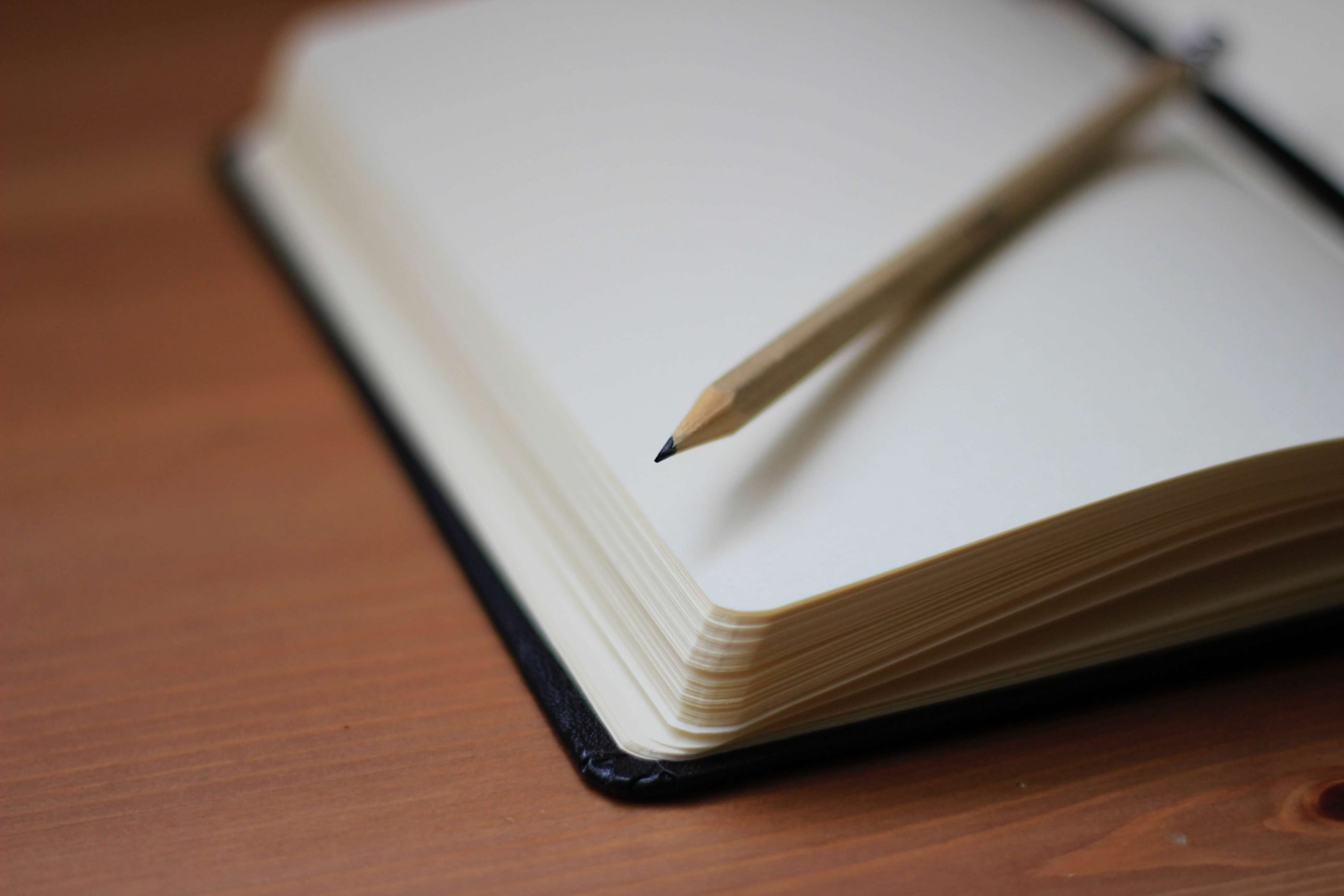
The next time someone or something interrupts you, take a moment to write a note to your future self. You may not be able to stop all distractions, but you can manage the way you transition back into task mode, and a good old-fashioned memo can get you there faster.
Clear Your Desk
Clutter may not make any noise, but it can still be as distracting as heck. I make sure my desktop is always clear of anything I don’t immediately need. Not only does this help me focus on the task in progress, but if I’m interrupted, my thoughts won’t be something like this when I try to get back to work:
- That folder cover is the same shade of green as my Starbucks card. Did I remember to reload it?
- What’s that yellow piece of paper under that pile- oh, wait, it’s that handout from the meeting. Did they confirm the next one? Better check so that I know when to start on that presentation.
When everything on my desktop is 100% relevant to the task at hand, it’s so much easier to pick up where I left off. Just remember to clear it all away before you start the next assignment.
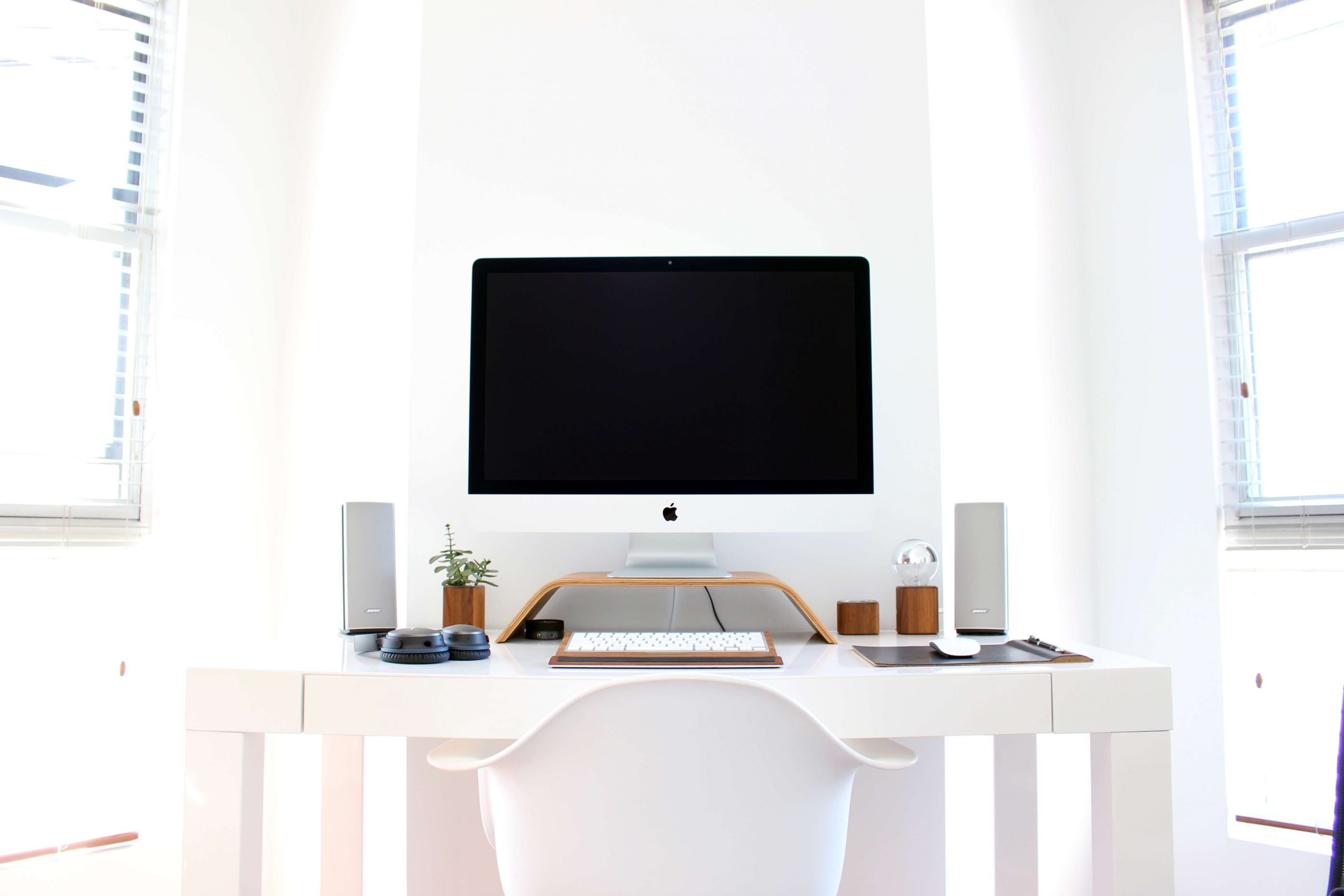
Stop When You Know What Comes Next
Author Ernest Hemingway once shared his cure for writer’s block. He said that each time he stopped work for the day, it was always at a point where he knew exactly what was going to happen next. The next day, he found it easy to pick up where he left off.
Every writer who’s followed Hemingway owes him a debt of gratitude for that advice, and now I believe that everyone who works in an open office or another place full of distractions should drink a toast to his memory. If someone interrupts you, ask them to give you a moment and stop working when you know exactly what you have to do next. You’ll find it easier to pick up where you left off and get back into the zone more quickly.
Breathe Deeply
When you’re finding it difficult to think clearly after a distraction, slow down your body as well as your mind. Go somewhere private, close your eyes, and focus on your breath as you inhale and exhale. Soon you’ll feel centered, calmed, and better able to recall what it was you were trying to do before your coworker asked you for your Starbucks order or the boss called to request another copy of her agenda.
Conclusion
Avoiding distractions at work in this digital age can be difficult, but fortunately, there are strategies you can use to help keep your attention where you need it to be. The tips in this article have worked for many people, including myself, and you’re sure to find a few that are perfect for you.
Rose Keefe is an author and technical writer who has over ten years’ experience in supporting project managers in the manufacturing and construction sectors. One of her primary responsibilities was developing product manuals that supported efficient use of industrial equipment. She continues to write on the subject of time management and commercial productivity for trade websites and publications.
